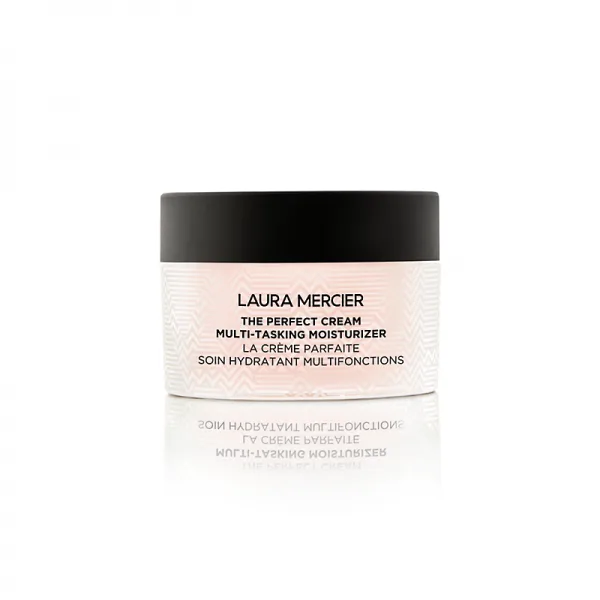Hair loss can be a life-altering experience, especially for women who identify with luscious hair as a symbol of youth and vitality. If you’re one of the more than 80 million men and women in the United States struggling with hair loss and thinning strands, we’re here to help.
What Is Hair Loss?
When washing or brushing your hair, you might notice a significant amount of hair strands lifting away from the scalp. Don’t panic—that’s likely not hair loss. According to Dr. Dominic Burg, chief scientist and trichologist at évolis professional, it’s completely normal to lose up to 100 hairs a day. “If this sounds like a lot, you have to remember that you have around 100,000 to 150,000 hairs on your head, so this only represents 0.001% of your total hair,” he assures. “After they fall they are generally replaced by a new hair growing in its place,” Dr. Burg adds.
So, what is hair loss? “Hair loss describes the gradual or sudden loss of actively growing hair follicles on the scalp, usually following a change in the hair growth cycle,” explains Dr. Burg. To understand hair loss, it’s important to understand this growth cycle. “The hair cycle is a repeating pattern of growth, rest and fall that happens many times over your life, with the average hair cycle being six or seven years in length,” Dr. Burg says. That said, this cycle is not in unison. “The hair cycles asynchronously, with each hair following its own timing and pattern.”
At the center of the hair cycle and hair growth are the hair follicles. “Hair follicles are actually little organs—much like any other organ in your body—and like other organs, are made up of different parts that do different jobs,” says Dr. Burg. “Ultimately, hair follicles are little machines geared up to manufacture hair shafts out of keratin. The follicles have to work extremely hard to do this 24/7, burning a lot of energy in the process,” he notes. “The body’s control over the process is complex, and like anything complex, it can be quite easy to disrupt the balance and for things to go a little awry. This is the root cause of hair loss and thinning,” he explains.
According to Dr. Burg, most forms of hair loss are caused by a shortening of the growth phase during the hair cycle. “When the growth period becomes too short, hair falls out quickly, excess shedding occurs and the regenerating hair comes in finer and is less substantial,” he notes.
Why Does Hair Loss Occur in Some Women?
A shortened growth cycle might be the root cause of hair loss, but what messes with the hair cycle to begin with? “Hormones, diet, stress, genetics, aging and [damaging] hairstyles are many of the reasons,” says Dr. Burg. “The causes of hair loss are varied and complex and can be a combination of lifestyle and genetic factors. Common to all of these is a resulting dysfunction in the hair cycle and shortening of the anagen phase [the first phase of the hair growth cycle],” he notes.
Here’s a closer look at some of the most common hair loss culprits:
- Hormones: “Hormones are very potent molecules that affect the body in profound ways,” explains Dr. Burg. “Many of them can also impact the way hair grows, metabolizes and cycles,” he notes. If hair loss occurs due to hormones, it typically has to do with a change in levels such as during pregnancy or menopause. However, hormonal hair loss can also occur with challenges in thyroid hormones and hormones altered by birth control.
- Diet: According to Dr. Burg, a balanced diet is crucial for maintaining healthy hair. However, with strict or restrictive diets, “we may not be getting all the nutrients and energy we need for healthy hair growth,” he notes. “The body is an amazing machine that intricately conserves and manages energy balance and nutrition. Your body knows that your hair is not essential for maintaining your life, unlike your heart, lungs and brain. When your body is under stress or you don’t have enough nutrients, it will shuttle those nutrients and energy to essential organs and away from the hair.” When this occurs, the hair follicles “prematurely enter the resting phase and slowing of growth,” Dr. Burg explains.
- Stress: “Along with diet, stress impacts the way the body shuttles and manages energy and nutrients,” says Dr. Burg. “High levels of constant stress put the body into a constant fight-or-flight mode where hair growth is not a critical function and is reduced in favor of other systems,” he adds.
- Genetics: Your hair loss could also be caused by your genes. However, Dr. Burg says genetically caused hair loss is a bit more complex. “From recent studies in men, we know over 150 genes are involved, including the hair cycle regulator FGF5 [a protein that stops and starts hair growth]. A similar story is likely occurring in women as well,” he notes.
- Medications and Illness: Just like diet, medication can also have an impact on your hair growth. “Some medications can result in hair loss and many people experience some hair loss in the weeks and months after an anesthetic or large medical procedure,” says Dr. Burg. “Prolonged illness can also cause hair loss.”
- The Aging Process: Aging can also have an impact on the hair cycle, which could result in hair loss. “Our hair follicles work extremely hard, dividing their cells and producing the keratin and melanins that comprise the hair shaft,” explains Dr. Burg. “Hair follicles work in a cycle of growth, rest and fall, followed by regeneration from remnant stem cells. As this cycle is repeated many times over our lives, the follicles begin to get a little tired and hair-cycle disruption begins to occur,” he adds. The disruption of the hair cycle can often be followed by “cycle shortening and miniaturization.”
- Hairstyles: We put our hair through the ringer for a good look. And according to Dr. Burg, it can have its repercussions. “Very tight hairstyles can damage the follicles and the arrector pili muscle, resulting in traction alopecia [gradual hair loss]. Overuse of heat and harsh chemicals can also result in damage to the scalp and follicles,” he warns.
















